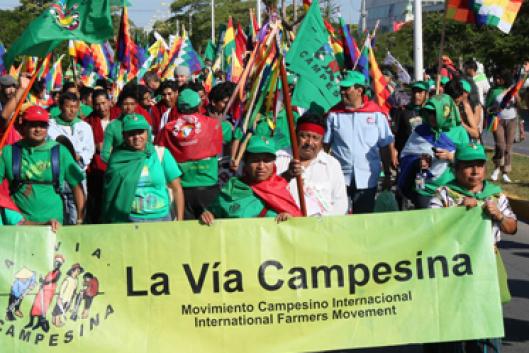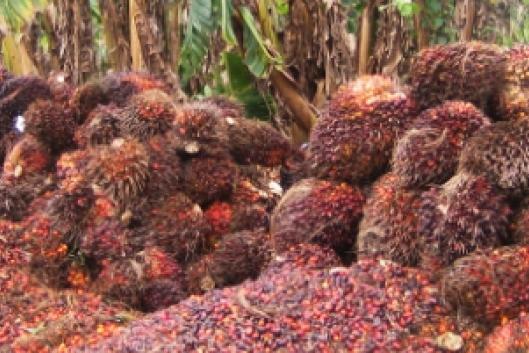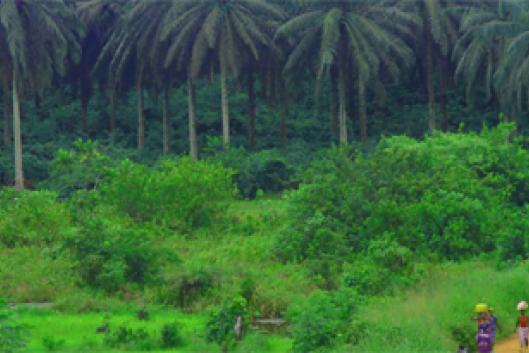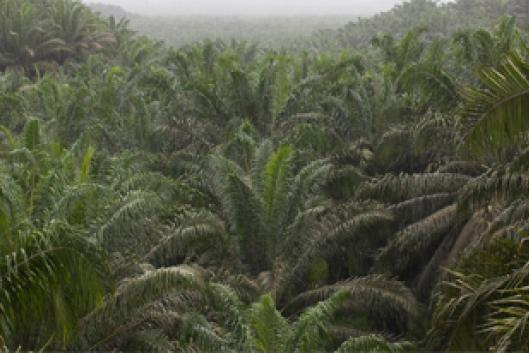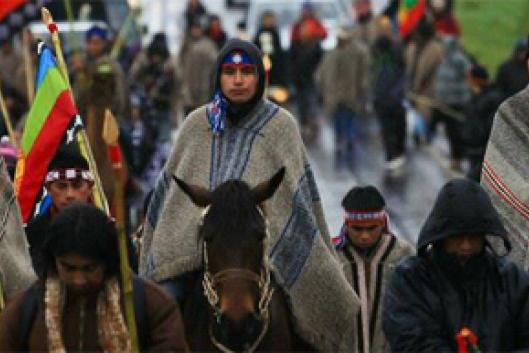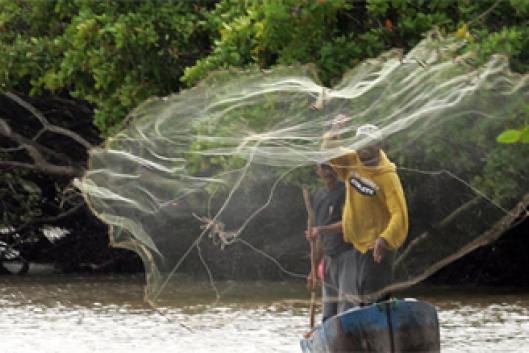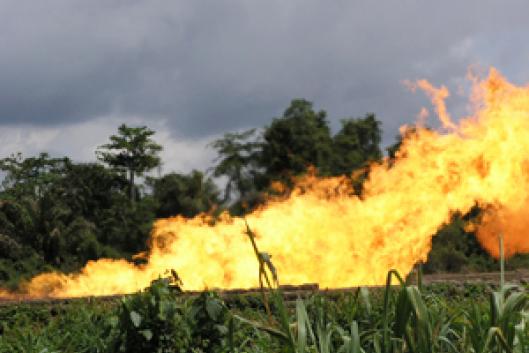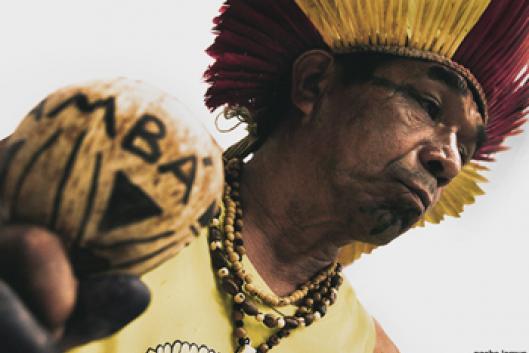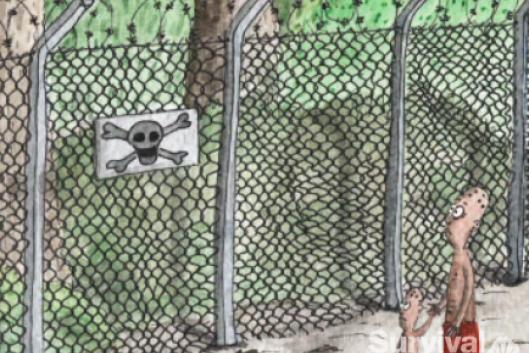Significant advances have been made in recent decades in the struggle for rights at the international level. Numerous countries now recognize a series of economic, social, cultural and environmental rights. Communities and peoples who depend on forests, particularly indigenous peoples, have gained greater recognition of their rights over the territories they have traditionally occupied. In spite of these advances, however, of the very same rights recognized on paper continue to be violated – and increasingly so, as is demonstrated in this issue of the bulletin by articles and testimonies from Nigeria, Sierra Leone, Indonesia and Chile.
Bulletin Issue 199 – February 2014
Territories under siege by industrial tree plantations and other mega projects
WRM Bulletin
199
February 2014
OUR VIEWPOINT
TERRITORIES UNDER SIEGE BY INDUSTRIAL TREE PLANTATIONS AND OTHER MEGA PROJECTS
-
7 March 2014Okomu Oil Palm, which operates in the palm oil as well as rubber production business, was established in 1976 as a Federal Government of Nigeria pilot project covering an area of 15,580 hectares out of which 12,500 hectares could be planted with oil palm. In 1979 the company was incorporated as a private company with limited liability and in 1990, within a Structural Adjustment Programme, it was converted to a Public Limited Company (PLC). It is a member of the Belgian Socfin, a global player group in the cultivation of oil palm as well as rubber, coffee and tropical flowers. Socfin owns 62.69% of Okomu Oil Palm’s shares.
-
7 March 2014One month after the confrontation between land owners in the SahnMalen Chiefdom, Pujehun District in southern Sierra Leone and the SOCFIN Agricultural Company (see WRM Bulletin 197, at http://wrm.org.uy/articles-from-the-wrm-bulletin/section1/ sierra-leone-farmers-reject-land-grab-for-oil-palm-plantation/), Green Scenery published a 13-page report on the clamp down on community members who have been advocating for their rights to their land.
-
7 March 2014The villagers of Buol District, in Central Sulawesi, have struggled for 20 years to regain their lands. All of their customary lands and forests had been signed away without their knowledge or consent to one of Indonesia's richest and most powerful families - business magnate Murdaya Widyawimarta and his wife SitiHartatiCakraMurdaya through their holding company, the Cipta Cakra Murdaya Group- for the creation of a massive 22,000 ha oil palm plantation. The business had a dramatic toll: the farmlands and forests used by over 6,500 families were destroyed.
-
7 March 2014Historically, relations between Mapuche indigenous communities and the forestry industry have been marked by conflict, primarily because of the expansion of industrial tree plantations on lands that are part of the Mapuche territory and the impact of these plantations on the communities’ habitat.
-
7 March 2014Communities, peoples and civil society organizations have worked for years to raise the visibility of the significant benefits of the mangrove ecosystem and the importance of its existence. They have fought for the recognition of mangroves as highly productive systems that provide livelihoods and a space for the practice of the cultures and traditions of coastal peoples. “The mangrove is our natural enterprise, it is our employment, it does not ask us for our qualifications or a CV or identification. As long as we are in good health we can cast our nets and harvest our food,” declared Enrique Bonilla, president of COGMANGLAR and a fisherman from Champerico, Guatemala.
PEOPLES IN ACTION
-
7 March 2014In Nigeria, a coalition of social and environmental justice organisations including Environmental Rights Watch/Friends of the Earth Nigeria, Green Alliance Nigeria, the Host Communities Network of Nigeria, and Students Environmental Assembly Nigeria, have stepped up the pressure on elected politicians to approve an improved, "pro people Petroleum Industry Bill", PIB2012. On 25th February 2014 the coalition demanded that the government adopt the "PIB not as it is currently but with an amendment proposed by the civil society coalition."
-
7 March 2014Once again we are calling for your support for the legitimate struggle of the Tupinambá indigenous people of the state of Bahia, Brazil.XXX
-
7 March 2014The “eyesore of the year” award is given by the Network Social Responsibility (NeSoVe) - a network of NGOs and workers' representatives - to companies, organizations, institutions and individuals who have acted very irresponsibly and without regard to social and / or environmental damage, often using elaborately designed Sustainability and CSR reports, lobbying and sponsorship. The blame and shame award “eyesore of the year” aims at uncovering and denouncing this behaviour to demand corporate accountability.
RECOMMENDED
-
7 March 2014Online resources and in-depth investigations on the social, ecological and political impact of French transnational corporations. See http://www.multinationales.org/?lang=en
-
7 March 2014Around the world ‘development’ is robbing tribal people of their land, self-sufficiency and pride and leaving them with nothing. “There you go” is a short, satirical film, from Survival International, that tells the story of how tribal peoples are being destroyed in the name of ‘development’. For further information see http://www.survivalinternational.org/
